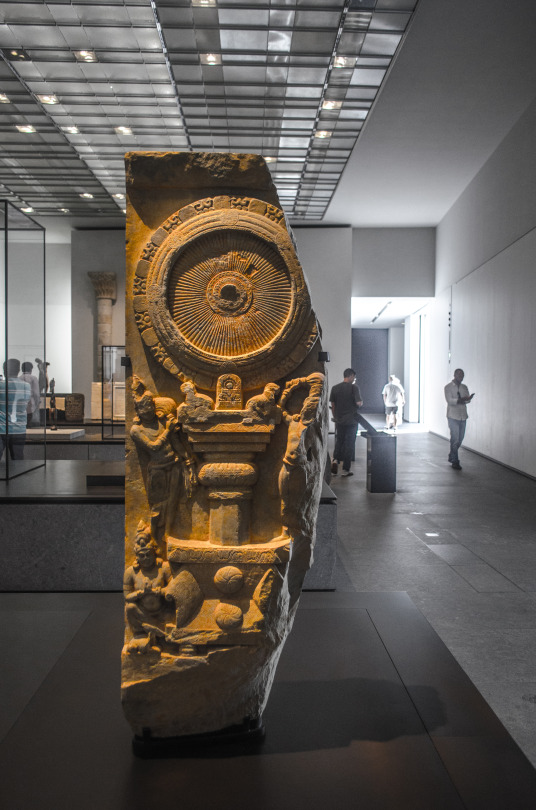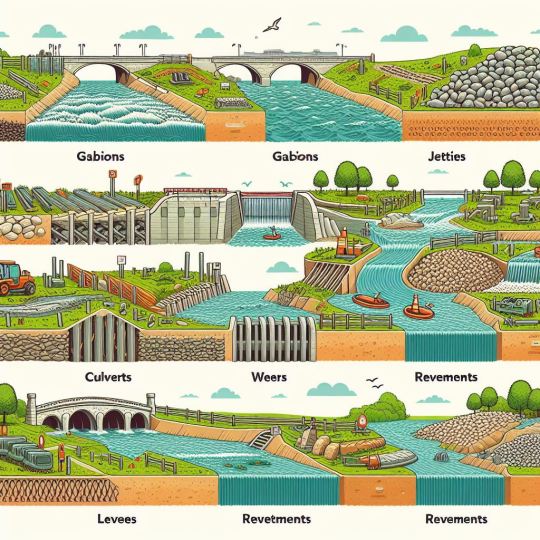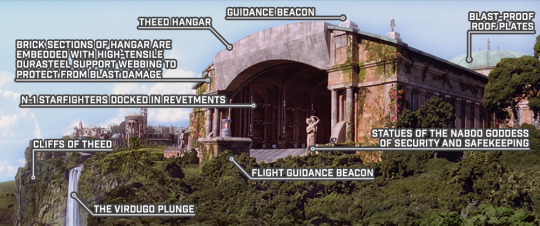#revetments
Text
Types of River Protection Works by Water Resource Engineering
Rivers play a crucial role in shaping the landscape and supporting ecosystems, but they are also susceptible to various natural and human-induced threats. Water resource engineering encompasses a range of techniques and structures designed to protect rivers from erosion, sedimentation, and other potential hazards. In this article, we will explore the various types of river protection works…

View On WordPress
#and bioengineering#dikes#gabions#including embankments#Retaining Walls#revetments#riprap#river training works#spur dikes#toe protection#Water resource engineering encompasses a variety of crucial techniques
0 notes
Text

『川辺でアイス』
20230817
6 notes
·
View notes
Text
Sahih Muslim, The Book of the Merits of the Companions, Book 44, Hadith 308
'Abdullah b. Umar reported that Allah's Messenger (ﷺ) led us 'Isha' prayer at the latter part of the night and when he had concluded it by salutations he stood up and said:
Have you seen this night of yours? At the end of one hundred years after this none would survive on the surface of the earth (from amount my Companions). Ibn Umar said: People were (not understanding) these words of the Messenger of Allah (ﷺ) which had been uttered pertaining to one hundred years. Allah's Messenger (ﷺ) in fact meant (by these words) that on that day none from amongst those who had been living upon the earth (from amongst his Companions) would survive (after one hundred years) and that would be the end of this generation.
Sahih Muslim, The Book of the Merits of the Companions, Book 44, Hadith 308
#Allah#god#islam#quran#muslim#revert#revet islam#Convert#convert islam#converthelp#revert help#reverthelp#revert help team#help#islam help#salah#dua#prayer#pray#reminder#religion#Mohammad#new muslim#new revert#new convert#hijab#how to convert to islam#convert to islam#welcome to islam#Ya Jameel
2 notes
·
View notes
Text
DAILY DUA
Dua after the last tashahhud and before salaam #4
اللَّهُمَّ اغْفِرْ لِي مَا قَدَّمْتُ وَمَا أَخَّرْتُ ،
وَمَا أَسْرَرْتُ وَمَا أَعْلَنْتُ ، وَمَا أَسْرَفْتُ ،
وَمَا أَنْتَ أَعْلَمُ بِهِ مِنِّي
أَنْتَ الْمُقَدِّمُ وَأَنْتَ الْمُؤَخِّرُ ،
لَا إِلَهَ إِلَّا أَنْتَ
Translation
O Allah, forgive me for [sins] I committed beforehand as well as those which shall come to pass,
and those I have committed in secret as well as those I have committed in public,
and where I have exceeded all bounds as well as those things about which You are more knowledgeable.
You are Al-Muqaddim (the Expediter) and Al-Muakh-khir (the Delayer).
None has the right to be worshipped except You.
Note: Al-Muqaddim and Al-Muakh-khir means that Allah puts forward and favours whom He wills from amongst His creation just as He defers and holds back whom He wills in accordance to His wisdom.
E.g. Favouring man over the rest of creation, favouring the Prophets over the rest of mankind, favouring Muhammad (peace be upon him) over all the Prophets and Messengers…etc.
Transliteration
allaahum-magh-fir lee maa qaddamtu wa maa akh-khart,
wa maa asrartu wa maa a‛lantu wa maa asraft,
wa maa anta a‛lamu bihi minnee,
’antal-muqad-dimu wa antal-mu’akh-khir,
laa ilaaha il-laa ant.
Sources: Muslim No# 771; Abu Dawud No# 760, 1509; At-Tirmidhi No# 3422
#dua#allah#islam#revert#muslim#quran#god#muslimah#convert#reverthelp#revet help#converthelp#revert help team#revert islam#convert islam#islam help#pray#prayer#help#salah#hijab#reminder#religion#muhammad
5 notes
·
View notes
Text
Jedi Acrobatics

STAR WARS EPISODE I: The Phantom Menace 00:24:40
#Star Wars#Episode I#The Phantom Menace#Naboo#Theed#Theed Hangar#Occupation of Naboo#Obi-Wan Kenobi#Obi-Wan Kenobi's lightsaber#padawan braid#Form IV#Ataru#N-1 starfighter#battle computer#charging revetment#heat sink finial#B1 infantry battle droid#unidentified battle droid
3 notes
·
View notes
Text
The Life of The Prophet Muhammad(pbuh): Calling the Tribes to Islam, the Allegiances of Aqaba and Migration to Madinah
The Prophet Calls the Tribes to Islam
After the Prophet Muhammad (pbuh) had been a target to the unscrupulous and ignoble treatments in Taef, he then got back to Mecca, where he received far worse reaction and opposition from polytheists. Nevertheless, he never in the slightest hesitated to convey his message. On the contrary, after he returned from Taef, he made the field of calling-to-Islam even broader and began to invite peoples into Islam.
Certainly, the rapid spreading of a cause is directly proportional to its firm adherents of merit and with good standing. Knowing the importance of this fact, the Prophet Muhammad (pbuh) often went to the Arabian tribes in order to both call them to Islam and use them as a force to the Quraishian polytheists.
Each one of the tribe chiefs refrained from entering Islam by using different pretexts. There were some people among them who showed their desire to become Muslims; they were prevented from joining the ranks of Islam.
Moreover, some of them even insulted the Prophet Muhammad (pbuh), let alone become Muslims.
Polytheists went to the places where the Messenger of Allah wandered and follwed him like a shadow. Doubtlessly, the fact that the polytheists were spreading a nasty propaganda based on lies and slanders played an important role in the tribesmen’ not choosing Islam.
The Messenger of Allah never gave up visiting the fairs of Ukaz, Majanna and Dhul-Majaz; he met and talked to the tribes that came there, recited the Quran to them and invited them to Islam. However, while he wandered among people with this sacred aim, Abu Lahab always followed him and said, “Muhammad converted from the religion of his ancestors; he is telling lies; do not believe him!”, trying to prevent people from talking to him.
The Noble Prophet (pbuh) did not preach Islam among the tribesmen in general, but he often talked to their chiefs about Islam. For tribesmen had a huge reverence and loyalty to their chiefs. A chief’s choosing Islam would have meant his whole tribe’s choosing Islam. Because of this reason, the Noble Messenger (pbuh) followed the way, which would lead him to the achievement as soon as possible.
We see that the Prophet Muhammad (pbuh) in conveying a message carried out a significant principle: to start with the respected ones if possible. If the respected ones of any community accepted and adopted a belief, that would lead an easy way for the ordinary man to accept and adopt it as well.
FIRST MUSLIMS OF MADINAH
It was the eleventh year of the Islamic calendar and the season for Hajj.
Many pilgrims came to Mecca from various parts of the peninsula and among them were individuals from Medina.
While our Holy Prophet (PBUH) was circulating among the tribes and inviting them to testify to Islam, as he always did, he came across a group of six individuals from Medina who also came near the area of Aqaba. He asked them, “Who are you?”
They answered, “We are from the tribe of Khazraj.”
Our Holy Prophet (PBUH) again asked, “Are you the neighbors and allies of the Jews?”
They replied, “Yes.”
Upon this our Holy Prophet (PBUH) said, “Could you sit down so we can talk?”
They agreed and sat down.
Our Beloved Prophet (PBUH) invited them to testify to the Oneness and Existence of Allah. He recited a section from Surah Ibrahim and invited them to convert to Islam.
They had heard from their elders that a Prophet would come from the progeny of Ghalib ibn Fihr (our Holy Prophet’s (PBUH) ninth great-grandfather.)
Furthermore, a disagreement dating back to two brothers existed between the Jews of Madina and the Tribes of Khazraj and Aws. They would sometimes make peace and would quarrel at other times.
The Jews were from the People of the Book and possessed knowledge whereas the Aws and Khazraj were idol worshippers.
Whenever they had a falling out with the Jews, the Jews would say, “The awaited Prophet is about to come. We will testify to him when he arrives and will kill you off like the tribes of Irem and Ad.”
When our Holy Prophet (PBUH) invited them to Islam, they looked at one another and said, “By God, this must be the Prophet the Jews have spoken of. Beware the Jews surpassing us in believing in him.” They quickly testified and recited the oath of faith in the presence of our Holy Prophet (PBUH.)
Afterwards they addressed our Beloved Messenger (PBUH):
“Members of our tribe foster animosity toward one another and towards another tribe. It is hoped that Allah will unite them through your assistance. We are immediately going to go back and invite them to testify to your message. If Allah brings and unites them together upon this religion, then there cannot be anyone more glorious and honorable than you.”
The individuals who accepted and were honored through our Holy Prophet (PBUH) invitation were:
Abu Umama As’ad bin Zurara,
Awf bin Harith,
Rafi’ bin Malik,
Qutba bin Amir,
Uqba bin Amir,
Jabir bin Abdullah bin Riab.
These six individuals were esteemed and beloved among their tribe. When they returned to Medina, they described our Holy Prophet (PBUH) to their relatives and invited them to Islam, Islam resonated within the city. The voice of Allah and His Messenger (PBUH) encircled the city’s horizon. It was as if there was no home left remaining in Madina that did not mention our Holy Prophet’s (PBUH) name.
Thus, those six people had the honor of taking gleams from the light of Islam to people. The eternal light, whose gleams reached Madinah, would glare suddenly and make the city the center of the Islamic state.
#allah#god#islam#muslim#quran#revert#convert#convert islam#revert islam#revert help#revet help team#help#islamhelp#converthelp#how to convert to islam#convert to islam#welcome to islam
2 notes
·
View notes
Text
ISLAM 101: Spirituality in Islam: Part 61
Yaqin (Certainty)
Yaqin (certainty) means having no doubt about the truth of a matter and arriving at accurate, doubtfree knowledge through exact verification. Used also to mean verification, seeking certainty, examining, and exerting strenuous effort to arrive at certainty, certainty is a spiritual station that a traveler on the path has reached and experienced. It is obtained only by those who have an innate capability to progress and develop inwardly. This term is not used for God’s Knowledge, which is infinite and therefore neither increases nor decreases. God does not have a Name by which he is known as “One having certainty or giving certainty.” In addition, certainty is a degree reached through study and verification of something previously doubted. The Divine Being neither doubts nor needs verification.
According to truth-seeking scholars, yaqin means certainty or conviction of the truth expressed in the essentials of faith, including primarily one’s doubt-free belief in God’s Existence and Unity. It is also defined as reaching that conviction through observing or experiencing the originals or truths of those essentials in which regular people believe, and discerning or penetrating the realms beyond this material one.
Certainty may also be regarded as a point, final in one respect and initial in another, reached by using all sources of knowledge and ways of observation and discernment. A traveler who has reached this point frequently sails for what is eternal, realizing ascension in his or her heart and reaching the horizon of: His sight swerved not, nor did it go wrong (53:17). He or she travels amidst Divine manifestations in the material and immaterial realms, and is favored with a tongue to speak, eyes to see, and ears to hear (the truths contained in) the Supreme Sign. [1] That is, repeated observation and study of the book of the universe, of the things and events contained in it, allows the traveler to eternity to perceive the meanings of the inimitable seals on things and events special to God. [2]
By repeatedly observing and reflecting on the scenes presented for study in the outer world as well as in his or her inner world, truths beyond the visible realm are unveiled to the traveler. Also, by living in the brilliant, mysterious climate of Divine Revelation, namely the Qur’an and the Sunna, one feels the manifestation of the Hidden Treasure in his or her heart. The believer becomes aware of and experiences the tokens and signs issuing from the prism of his or her conscience, which reflects the rays of Divine gifts coming from the outer world, his or her inner world, and the Divine Revelation, and sends them to his or her senses and faculties. Certainty, in this meaning and degree, is a gift with which God favors those near to Him.
Even in its least degree, certainty is so strong that it fills the heart with light, removes the mist of doubt from the mind, and causes breezes of joy, satisfaction, and exhilaration to blow in one’s inner world. As pointed out by Dhu al-Nun al-Misri, certainty causes the heart to overflow with the desire to reach eternity. This engenders the desire to live an austere life, for asceticism allows one to think and speak with wisdom. One who takes the wing of asceticism and flies to the realm of wisdom never forgets what the end will be, always thinks of the afterlife, and always feels God’s company, even when with other people. [3]
In the early steps of certainty, the veil between the material and immaterial sides of existence begins to be removed and, a few steps further, the traveler discerns the realm beyond this material world. With his or her heart filled with Divine manifestations, which result in the attainment of peace and satisfaction, the believer is freed absolutely from all doubt about the truths of faith. Like ‘Ali ibn Abi Talib, may God be pleased with him, some who have attained this degree of certainty have declared: Even if the veil between the seen and the Unseen were to lift, my certainty would not increase. [4] A few steps further on is the station where one journeys in the pure realm of Divine gifts, of which eyes have never seen, ears have never heard, or minds have never conceived.
To gain certainty, an initiate beginning the journey must try to do what is necessary to reach it. However, one can only reach this station when God bestows it as a blessing and gift. Without acquiring due knowledge of God, one cannot reach certainty. Knowledge of God is acquired through a correct view of and perspective on things and events; the ability to think in a correct and balanced manner; purity of intention; study of the signs of God’s Existence and Unity; and reflection on His acts and the manifestations of His Names and Attributes. Knowledge of God is a light illuminating the initiate’s inner and outer worlds, a light shining from all corners of existence. Under the rays of this light, the initiate sees everything as it really is and, being freed from the confines of multiplicity (of things and events), discerns Divine Unity and is enraptured with indescribable spiritual pleasure.
Although an initiate may feel uneasy during the early steps of the way to certainty, he or she will be lost in inconceivable pleasure and peace at the end of it. Those who cannot distinguish between what is felt in the beginning and what is experienced at the end wrongly conclude that certainty is risky; however, those who constantly feel God’s company and the resulting spiritual delight enjoy peace and security from all spiritual trouble and possible deviation. Uneasiness and trouble are felt only in the beginning. As for certainty being risky, all stations confront the traveler with some degree of risk. The Prophet, upon him be peace and blessings, declared: Even I would not be able to be saved (from Hellfire or God’s punishment through my own actions), if God did not embrace me in His mercy. [5] As for being secure from trouble and deviation and gaining peace, these are fresh fruits that God causes certainty to yield.
As referred to in some verses of the Qur’an, Sufis classify certainty in the three categories:
– Certainty coming from knowledge: Having a strong, firm belief in or conviction of all the essentials of faith, primarily God’s Existence and Unity, acquired through correct observation and study of the relevant signs and evidence.
– Certainty coming from direct observation or seeing: Having an indescribable degree of certainty and knowledge of God acquired through unveiling and observing the immaterial truths invisible to ordinary believers and on which the essentials of belief are based.
– Certainty coming from direct experience: Being favored with God’s constant company, without any veils and in a way that only the one receiving this favor can perceive. Some have interpreted it as self-annihilation in God and gaining subsistence by Him.
These three degrees of certainty can be summed up in the following example: A person’s knowledge of death (before he or she dies) that is acquired by observing or studying the body in a biological context can be an example of certainty coming from knowledge. Witnessing some metaphysical phenomena, such as seeing the angel who has come to remove one’s soul and catching glimpses of the intermediate world of the grave, may be regarded as a kind of certainty coming from direct observation. The certainty gained by actually experiencing death is a certainty coming from direct experience.
Certainty about abstract truths, such as the nature of God’s Names and Attributes coming from direct observation, for example, pertains to one’s personal experience. It is therefore beyond my ability to explain.
[1] “The Supreme Sign” is a Qur’anic expression that is generally held to be the sign by which God is known most clearly.
[2] God’s signs, the signs of His existence and Unity, are displayed by everything in the language of wisdom, coherence, beneficence, and relation to other things. It is like a seal designed by Him to prove His Unity.
[3] Al-Qushayri, Al-Risala, 180.
[4] Al-Qari, Asrar al-Marfu’a, 286.
[5] Al-Bukhari, “Riqaq,” 18; Muslim, “Munafiqun,” 71-8.
#allah#god#islam#muslim#quran#revert#convert#convert islam#revet islam#revert help#revert help team#help#islamhelp#converthelp#prayer#salah#muslimah#reminder#new muslim#new revert#new convert#how to convert to islam#convert to islam#welcome to islam
3 notes
·
View notes
Photo

© Paolo Dala
Stupa Revetment (Retaining Wall)
From Amaravati, India (300 - 100 BC)
Louvre (Abu Dhabi, United Arab Emirates)
Stupa Revetment
“The stupa (Sanskrit for heap) is an important form of Buddhist architecture, though it predates Buddhism. It is generally considered to be a sepulchral monument - a place of burial or a receptacle for religious objects. At its simplest, a stupa is a dirt burial mound faced with stone (Khan Academy, 2021).”
13 notes
·
View notes
Text
JAMI’at-TIRMIDHI: The Book on Legal Punishments: Hadith 1862
Narrated Abu Burdah bun Niyar:
That the Messenger of Allah (ﷺ) said: "No one is to be lashed more than ten lashes except for a legal punishment among Allah's punishments."
Reference: Jami` at-Tirmidhi 1463
In-book reference: Book 17, Hadith 47
English translation : Vol. 3, Book 15, Hadith 1463
#allah#god#islam#muslim#quran#revert#convert#convert islam#revet islam#reverthelp#revert help#revert help team#help#islamhelp#converthelp#how to convert to islam#convert to islam#welcome to islam
0 notes
Photo

Les Tapis Tatami Puzzle 2.5cm Bleu-Rouge Brique est un indispensable revêtement de sol créent un espace d’exercice confortable, antidérapante et rembourré pour le mouvement du sol. Fabriqué d’une mousse EVA d’une dentiste de 2,5 cm d’épaisseur et une surface plat de 1m x 1m qui va sans doute ajoutez un certain degré de protection de rembourrage Bicolor et Multifonctionnel ces Tapis Tatami Procède 2 faces au couleur différente ce qui vous permet de les installer en couleur unit ou mixer selon votre gout Esthétiquement bien posée ces dalles Tatami sont dotée de 2 faces structures (striée / Antidérapante ) et des bordures adaptée pour garantir une forme carre bien fini Largement utilisée dans les espaces sportifs ou les compétitions des arts martiaux L’assemblage simple vous permet de connecter rapidement ces tapis de sol grace leur conception unique puzzle Aussi facile a les démonter pour les déplacer vers un nouvel emplacement ou meme les stocker pour des années et des années d’utilisation Disponible dans d’autres couleur ( Noir-Gris et Noir-Jaune et Bleu-Jaune ) Caractéristiques – Tapis Tatami Puzzle 2.5cm Bleu-Rouge Brique : Matériaux : Mousse EVA (Ethyl Vinyl Acetate) haute qualité, Type De Tapis : Tatami puzzle réversible emboîtable Double Face : Oui ( surface striée / Surface anti-dérapante ) Couleur : Bleu-Rouge Brique Motif : Rhombique (anti-dérapant) Dimensions : 1m x 1m Epaisseur : 2,5cm Poids Par Piece : 2,6 Kg #tatami #tatamipuzzle #puzzle #flooring #gymflooring #gymequipment #equipementsportif #maroc #rabat #rabatagdal #salledesport #gym #revetement (à Rabat, Morocco) https://www.instagram.com/p/CocrJuYqIRP/?igshid=NGJjMDIxMWI=
#tatami#tatamipuzzle#puzzle#flooring#gymflooring#gymequipment#equipementsportif#maroc#rabat#rabatagdal#salledesport#gym#revetement
0 notes
Text
Exploring the Diverse Techniques of River Erosion Works
Introduction
Rivers, with their ever-flowing currents, have the incredible power to shape the landscape over time. However, this natural force can sometimes pose a threat to human settlements, infrastructure, and agricultural lands. To mitigate the adverse effects of river erosion, various engineering techniques have been developed over the years. In this article, we will delve into the different…

View On WordPress
#bank protection#barrages#bioengineering#channelization#dams#ecological conservation#environmental sustainability#erosion control#groynes#realignment#revetments#riprap#River erosion#river training#sediment control#sediment control structures#spurs#sustainable engineering#vegetative bank protection#water resource management
0 notes
Text
Sahih Muslim, The Book of the Merits of the Companions, Book 44, Hadith 291
Anas reported that Allah's Messenger (ﷺ) established fraternity between Abu Ubaida b. Jarrah and Abu Talha.
Sahih Muslim, The Book of the Merits of the Companions, Book 44, Hadith 291
#Allah#god#islam#quran#muslim#revert#revet islam#Convert#convert islam#converthelp#revert help#reverthelp#revert help team#help#islam help#salah#dua#prayer#pray#reminder#religion#Mohammad#new muslim#new revert#new convert#hijab#how to convert to islam#convert to islam#welcome to islam#Ya Jameel
2 notes
·
View notes
Text
Theed Hangar

STAR WARS EPISODE I: The Phantom Menace 00:25:11
#Star Wars#Episode I#The Phantom Menace#Naboo#Theed#Theed Hangar#guidance beacon#blast-proof roof plates#high-tensile#durasteel support webbing#N-1 starfighter#starfighter revetment area#charging revetment#Cliffs of Thed#Virdugo Plunge#flight guidance beacon#Naboo goddess of security and safekeeping
1 note
·
View note
Text
The Life of The Prophet Muhammad(pbuh): First Migration, the Year of Sorrow, the Splitting of the Moon
Boycott Against Muslims
It was 617 AD, the seventh year of the prophethood.
Until this date, all of the polytheists’ attempts to thwart Islam’s development had failed. Moreover, Islam was developing at a quicker pace. The number of Muslims was increasing daily despite the presence of all kinds of violence and resistance. In fact, the light of Islam was beginning to embrace the tribes outside of Mecca.
Heroes like Hazrat Umar and Hazrat Hamza had joined the ranks of the Muslims. Hazrat Umar completely changed from his prior state by striving in the way of Islam with all of his strength and rigor and as a result became Islam’s right hand man. While this situation provided courage and morale for the Muslims, it greatly rocked the polytheists and caused them to think deeply.
On the other hand, Qurayshi polytheists could not retrieve the Muslims that took refuge in the land of the Negus. Ashama, the King of Abyssinia, did not only refuse to give them back but he also promised that he would protect them.
This forced and compelled the polytheists to make new plans and decisions.
The polytheists understood that torture and violence would not cause anyone to abandon his/her religion and they could not hinder Islam’s spreading and development. How was it that not one Muslim denounced his/her religion despite all the torture and cruelty they faced!
In that case, they had to implement different policies and that was what they did. They came together immediately. After thinking deeply and consulting with one another for a while, they decided to cut off all of their ties with the Sons of Hashim regardless of whether or not they were Muslims.
They wrote down the conditions of this decision that they had all agreed on together as follows:
1) They would not wed any women from the Sons of Hashim and Muttalib.
2) They would not give any women to the Sons of Hashim and Muttalib to wed.
3) They would not sell anything to the Sons of Hashim and Muttalib.
4) They would not purchase anything from the Sons of Hashim and Muttalib.
They thought that hanging this agreement, which was written on a sheet of paper, on one of the Kaaba’s walls would attach a tenor of holiness. Furthermore, they swore they would not act against this agreement.
This boycott was aimed at eliminating the Sons of Hashim and Muttalib and excavating their roots. In this situation, the families of the Sons of Hashim and Muttalib could no longer live in separate cities or scattered from one another. With the exception of Abu Lahab, the Sons of Hashim and Muttalib all moved to Shib (District) Abu Talib, which was located in the northern part of Mecca.
The polytheists cut off all of their ties with the residents of this neighborhood. Those who went there by accident were badly scolded.
The polytheists did not allow any food or drink to enter this area. They only allowed the Muslims to leave during the time of Hajj (the pilgrimage) to go shopping, but this was only a façade. It was a façade since they would follow them and attempt to hinder them in all kinds of ways from purchasing anything. In fact, they would occasionally threaten the merchants to prevent them from selling anything to the Muslims. Sometimes, they would apply all sorts of schemes and tricks to seize the merchants’ goods so that nothing would be left for the victims of this cruel boycott to purchase.
Despite the fact that Abu Lahab was from among the Sons of Hashim, he openly wanted his own siblings, kinsfolk, and relatives to die from starvation and did everything he could in this matter. On the outskirts of the city, he would greet the caravans carrying food to Mecca by saying, “Oh merchants! Do not sell anything to the Sons of Hashim! Make your prices high so that they cannot purchase anything from you. You know that I am wealthy. Whenever I make a promise, I will always be sure to fulfill it. Raise the prices of your edible and wearable goods. I will purchase remaining goods!” He caused the Muslims to go home empty-handed to their children who screamed out of hunger. The polytheists’ ears and hearts were plugged in the face of the heartbreaking and sorrowful screams of the hungry children.
They derived unparalleled pleasure from hearing these screams that had the potential to shatter stones. This is a lesson-filled example as to how disbelief, denial, and blasphemy can make people merciless and cruel even against their fellow humans.
Those who were subjected to this boycott were left to face a harsh scarcity and endure starvation since they were not able to purchase anything. This situation was so extreme that some began to eat leaves when they were unable to find anything else as well as any dry leather pieces they could find to roast over an open fire.
However, there were still some who felt compassion for the Muslims. One day, the son of Hazrat Khadija’s brother, Hakim bin Hizam, tried to save his aunt, Hazrat Khadija from despair by sending a camel load of flour.
On another occasion, he loaded wheat on the back of his slave to take to his aunt. He set off on the road with his slave and coincidentally bumped into Abu Jahl on the way.
Abu Jahl said to him, “You are taking groceries to the Sons of Hashim, is that right? By God, you cannot go. If you attempt to go then I will disclose this action of yours to all of Meccans and humiliate you.”
At that moment, Abu’l Bahtari came and chided Abu Jahl, “What’s happening to you? It is not right to hinder a person from taking some flour to his aunt.”
However, Abu Jahil did not forgo his stubbornness and persistence. Upon this, he engaged in a physical fight with Abu’l Bahtari. Abu’l Bahtari wounded his head with the bone of a camel’s chin and then later pounced on Abu Jahil while punching him.
Hisham bin Amr bin Harith was someone else who did not withhold his help from the Sons of Hashim and the Muslims out of his feelings of kinship. He had taken food with his camels to Shib a few times without the polytheists knowing.
They Spend their Wealth
Followed by Abu Talib and Hazrat Khadijah, our Holy Prophet (PBUH) was the first to spend his belongings to fulfill the needs of those who were subjected to this boycott. Nonetheless, they still could not save them from starvation.
A frightening state of hunger reigned in Shib.
Why was this all being done?
For only one thing: to make our Holy Prophet (PBUH) surrender.
The polytheists thought they could reach their goal in this way; however, the situation turned out to be different from what they had expected and hoped. The Muslims and the Sons of Hashim were immensely careful in guarding our Holy Prophet (PBUH) against any possible dangers. In fact, Abu Talib took our Holy Prophet (PBUH) by his side at nighttime or had others guard him by virtue of the possibility that our Holy Prophet (PBUH) could be assassinated.
This boycott that began in 617, the seventh year of the prophethood, at the beginning of the month of Muharram went on for three years. The starvation, despair, and famine the polytheists put the Muslims through could not hinder Islam’s development. Our Holy Prophet (PBUH) continued to duly deliver the message he had been appointed with and did not stop teaching Islam to his relatives and the Sons of Hashim for the slightest moment.
The Boycott was Lifted
It was the third year of the boycott.
Allah set a worm to go eat the sheet that the polytheists had hung on the Kaaba’s wall and notified His Messenger (PBUH) of this situation through a revelation. Only the writing, “Bismika Allahuma” (Allah, I begin with your name) remained on the sheet.
Our Holy Prophet (PBUH) explained the situation to his uncle, Abu Talib. Upon this, Abu Talib went to the polytheists and made the following offer:
“According to the news that my brother’s son has brought, Allah set a worm on the paper that you had hung on the Kaaba’s wall and this worm ate everything on this paper-your terms of cruelty, cutting ties with relatives, and slander, except for the expression regarding Allah’s name. Go to the Kaaba and look at the sheet. If what I am saying is true, then forgo your cruelty and bad treatment of the Muslims. If he has, may Allah forgive me for saying this, lied, then I will surrender him to you. You are free to kill or keep him alive.”
The polytheists went to the Kaaba and saw the situation exactly as Abu Talib described. Despite being amazed, they did not accept our Holy Prophet’s (PBUH) miracle and turned their eyes away from the light.
This circumstance slightly lessened the intensity of this boycott. In 619 AD, when a few reputable people came forth, this practice, which stemmed from disbelief and a boundless level of stubbornness, was lifted. The community heard that this agreement had now been abolished; thus, they ripped and threw away the sheet containing the boycott’s terms.
In this way, the polytheists were turning away from the heresy and cruelty they had characterized as “an irrevocable decision.” This openly declared the victory of faith over disbelief once more.
The three-year blockade was so harsh and grueling that our Holy Prophet (PBUH) never forgot this situation even after the passing of many years. When the time came for Muslims to conquer Mecca and as they were going toward the city from Mina, our Holy Prophet (PBUH) reminded his companions of those difficult days by saying, “InshAllah (By Allah), the place that we are going tomorrow, the homeland of the Sons of Kinana, that is Muhassab, where the Qurayshis and sons of Kinana had agreed on unbelief and denial"
#allah#god#islam#muslim#quran#revert#convert#convert islam#revet islam#revert help#revert help team#help#islamhelp#converthelp#new muslim#new revert#new convert#how to converty to islam#convert to islam#welcome to islam
1 note
·
View note
Text
Keto Instant Pot toscansk suppe
Keto Instant Pot toscansk suppe
Alle elsker en rygende varm skål suppe. Her går man ikke galt i byen med denne fantastiske Instant Pot Tocsanske suppe. Passer både til frokost og aftensmad – især på en kold dag, hvor du har lyst til noget hyggemad, der varmer dig op.
Instant pot suppe med øje for keto
Denne instant pot toscanske suppe vil helt sikkert blive en af dine nye favoritter. Den indeholder masser af protein, rig og…

View On WordPress
#instant pot#instant pot opskrift#instant pot opskrifter#instant pot suppe#italiensk#italiensk pølse#Keto#low carb#lowcarb#parmesanost#revet parmesanost#toscana#toscansk suppe
0 notes
Text
REVÊTOU recrute des Conseillers de Vente Show Room

REVÊTOU recrute des Conseillers de Vente Show Room sur Rabat.
REVÊTOU est une entreprise jeune et dynamique, spécialisée dans la distribution de revêtements d’intérieur et extérieur ainsi que de produits destinés à l’agencement et à la décoration.
Chez REVÊTOU, vous trouverez les plus larges gammes de matériaux et de couleurs pour réaliser la décoration de votre intérieur et extérieur.
Avec toujours plus de services, et pour plus de facilité de choix, chaque univers de produits est présenté dans un espace dédié où nos spécialistes vous prodigueront des conseils avisés.
Passionnée de décoration, l’équipe REVÊTOU vous offre un rapport qualité/prix/choix/conseil inégalé:
- Revêtements extérieur
- Revêtements intérieur
- Aménagement – Décoration
REVÊTOU: le concept
Le choix d’un revêtement se fait bien souvent par habitude d’une marque, par effet de mode et au pire des cas, par défaut. Bien plus rarement par coup de cœur. Pourtant le revêtement du sol, mur ou plafond est un élément de confort majeur.
Alors que les techniques évoluent et que des fabricants innovent, professionnels et particuliers ont difficilement accès aux trésors d’imagination et de robustesse dont ils pourraient bénéficier pour leurs revêtements.
Chez REVÊTOU, nous aimons aller à la rencontre des idées nouvelles et les faire connaître.
En effet, en visitant notre showroom:
vous serez étonnés par les nouveaux produits et les innovations que nous sommes allés chercher pour VOUS.
vous serez séduits par une offre exhaustive de couleurs et de matières, pour un choix à votre goût et dans la tendance.
vous serez épaulés par nos conseillers experts pour tous types de conseils techniques.
vous serez rassurés par une gamme de tarifs allant de premiers prix incroyablement accessibles à des prix raisonnables même pour les produits les plus luxueux.
REVÊTOU: une mission, une vision, des compétences
Décoration, art et nouveauté
Initiateur de tendances, REVËTOU distribue des matériaux décoratifs novateurs pour l’agencement des espaces privés et publics.
Ces différents revêtements respectent nos engagements de qualité, d’esthétique et de technicité.
Démarche, valeurs et objectifs
REVÊTOU fonde son identité sur la distribution de produits novateurs, inspirés par l’innovation, la créativité, la qualité et le respect de l’environnement. Son développement est motivé par l’ambition et l’expérience de son directeur, le savoir-faire de ses équipes et la confiance construite avec ses clients.
REVÊTOU recrute des Conseillers de Vente Show Room
Rattaché à la Direction Générale, votre mission est de promouvoir l’image de la société et de commercialiser les différents produits de REVÊTOU depuis notre showroom.
Vos principales missions seront les suivantes:
- Accueillir et informer les clients sur nos produits,
- Analyser les besoins clients,
- Conseiller efficacement sur les produits, les fonctionnalités, les choix,
- Gérer et suivre des dossiers clients (établissement et suivi des devis, la bonne réalisation des commandes, la facturation, le suivi logistique, et encaissement…),
- Veiller à fidéliser les clients,
- Consolider les ventes et atteindre les objectifs fixés,
- Participer à la vie du show-room.
Profil recherché:
Diplômé d’un Bac + 2 minimum en commerce, marketing ou gestion, vous justifiez d’une expérience d’1 an minimum en vente réussie et confirmée.
Vous êtes dynamique et cherchez une opportunité pour vous épanouir au sein d’une équipe jeune et motivée, dans un secteur en pleine évolution.
Vous êtes déjà installé à Casablanca.
Compétences et qualités requises:
- Professionnalisme et rigueur,
- Bon niveau de communication en français,
- Très bonnes qualités relationnelles,
- Maîtrise de l’outil informatique et du du logiciel SAGE (commercial),
- Technicité des produits et goût prononcé pour notre secteur d’activité,
- Vous êtes passionné(e) par la vente.
Nous vous aiderons à optimiser vos compétences, à optimiser vos chances de réussite et de promotion à devenir un véritable professionnel maîtrisant l’ensemble des compétences demandées.
Postulez ici
Read the full article
0 notes